
Formulating Decision Rule 2: A state-owned oil refinery
Introduction Last Sunday’s column (September 3) marked one year of uninterrupted weekly articles addressing the topic: ‘Guyana in the coming time of its oil and gas industry, circa 2020’.

Introduction Last Sunday’s column (September 3) marked one year of uninterrupted weekly articles addressing the topic: ‘Guyana in the coming time of its oil and gas industry, circa 2020’.
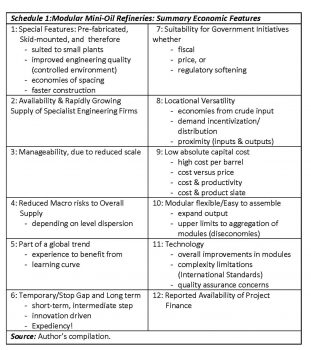
Introduction: Proviso It is worth repeating: my two previous columns had sought to make it abundantly clear that if a local oil refinery is established, which is wholly owned, managed and operationalized, either separately, or through a partnership (or some other joint arrangement), involving only 1) foreign investors (whether private, state, or some combination thereof), or 2) domestic private investors, this would be acceptable in my judgement, subject to one important proviso or caveat.

Introduction – Re-cap As posited last week, it is my view that the true essence of an oil refinery that is deemed local, lies in its type (form) of ownership, management, and operationalized control.

Introduction As indicated last week, today’s column initiates a presentation in the coming weeks, of my considered view on the efficacy of Guyana establishing a local oil refinery, in order to exhaust successfully the potential benefits of its recent oil and gas discoveries.

Introduction As indicated last week, today’s column aims to update my earlier (October 2016) assessment of Guyana’s petroleum discovery.
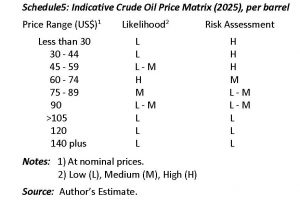
Introduction Today’s column revisits my previous estimate of the likely crude oil price at the time Guyana’s first oil is anticipated to be fully on-stream (2025).

Today’s column concludes the coverage on the economic characteristics of mini-oil refineries, started last week.
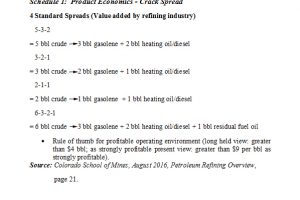
Today’s column wraps up the discussion started last week on the general economic characteristics of oil refineries.

Introduction Today’s column addresses several economic factors which are key to the oil refinery business.
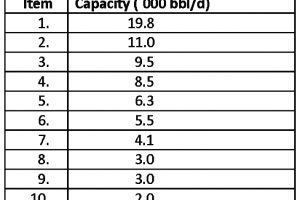
Introduction This week’s column and the next will attempt to evaluate the pros and cons of small mini-oil refineries.

Introduction My last column had introduced what is often deemed in the literature as the most fundamental observation related to oil refineries in energy economics.
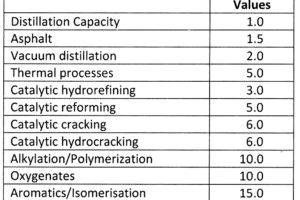
Introduction Oil and natural gas industry analysts and energy economists repeatedly highlight the basic observation that no two oil refineries are the same; stressing that they are unique in essential ways.
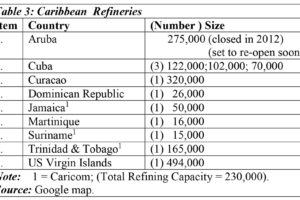
As repeatedly urged, readers need to be familiar with the basic structure/features of global oil refining, if they wish to make informed contributions towards Guyana’s first oil, particularly in view of the fact that a local refinery would likely contribute marginally (0.1 per cent) to global refining capacity.
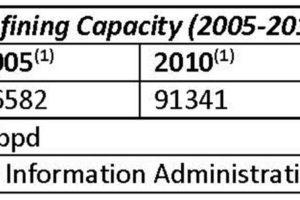
Introduction If one began with the standard industry description of an oil refinery that was earlier introduced, which is: “an industrial plant or complex that manages hydrocarbon molecules extracted from crude oil, natural gas liquids and national gas” (in the case of Guyana, at the Stabroek bloc Liza wells), that complex could produce an assemblage of different petroleum based products that can potentially reach several thousand.

Introduction Last Sunday’s column introduced several of what I labelled as nuts and bolts matters related to oil refining, of which I believe an informed Guyanese public needs to be aware.

Introduction In concluding last Sunday’s column (May 21), I had indicated that, starting today, I would offer commentary on the topic: establishing a local refinery to process Guyana’s expected production of crude oil, post-2020.
Today’s column starts with an offering of a few concluding comments on the topic considered over recent weeks: local content requirements/policies (LCRs) in the petroleum industry, as Guyana prepares for its own industry, scheduled to come on-stream post-2020.

Introduction My two previous columns (April 30 and May 7) were devoted to, respectively, the main findings of the United Nations Conference on Trade and Development (UNCTAD) 2013, and the World Bank’s 2013 evaluation/research of the lessons to be learned from global experiences with local content requirements/policies (LCRs) in the oil and gas sector.
Introduction Today I provide my penultimate presentation on “lessons to be learned from global experiences with local content requirements (LCRs) for the oil and gas sector”.
Introduction There is a formidable body of literature devoted to economic theorizing on the efficacy of local content requirements (LCRs) policies generally, and in developing countries specifically.
The ePaper edition, on the Web & in stores for Android, iPhone & iPad.
Included free with your web subscription. Learn more.